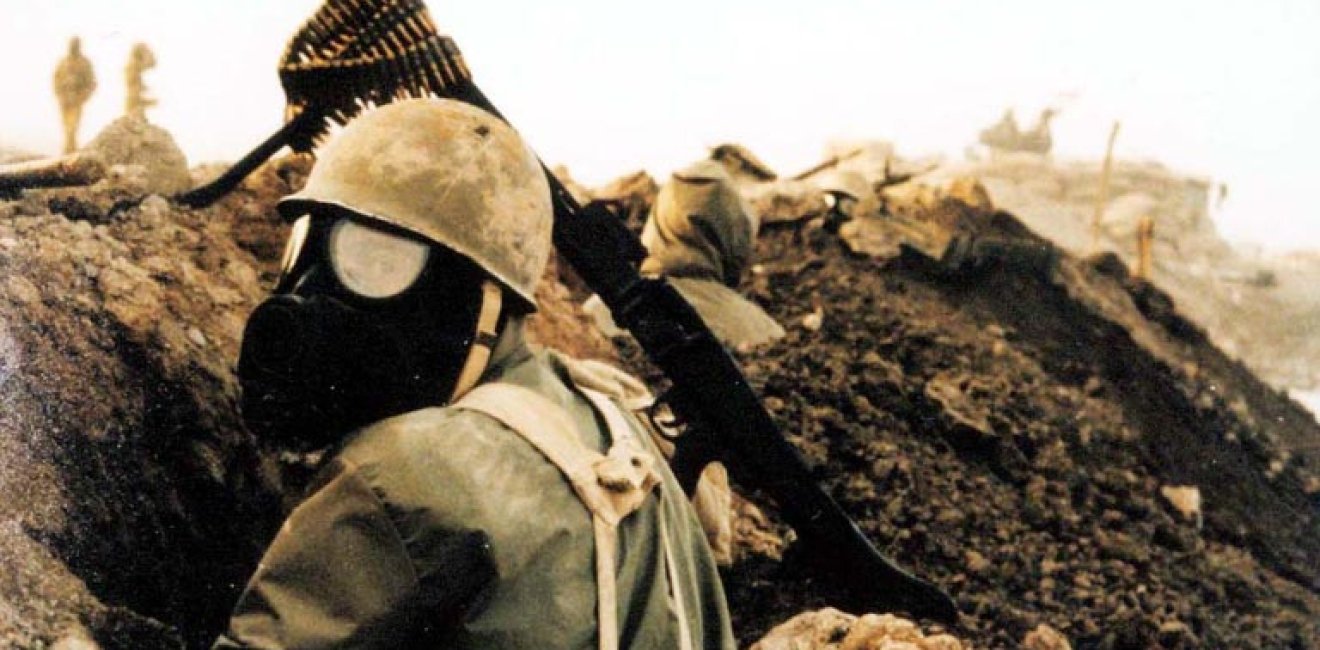Drawing on newspaper articles, United Nations reports, US government documents, interviews with Iraqi generals, and internal Iraqi records captured during the 2003 Iraqi War, this three-part series by Michael Brill focuses on the history of and lingering debate about Iran’s chemical weapons program and allegations of limited battlefield use. The history of Iran’s chemical weapons program has import to US-Iran relations, especially now as the JCPOA negotiations continue.
In the first blog of the series, author Michael Brill explores Iran’s history of chemical weapons proliferation and its relevance to current concerns about the country’s nuclear program. It also argues for the utility of Iraqi records, especially military intelligence files, in studying the subject.
The second installment shifts focus to the subject of Iraq’s introduction of chemical warfare to its war with Iran and Iraqi allegations of Iranian battlefield use, along with statements of Iraqi and Iranian officials.
The third and final segment of the article compares the sources used and what exists in the public record with internal Iraqi records on Iran’s chemical weapons program and battlefield use. Drawing heavily on records for the Iraqi General Military Intelligence Directorate, the article illustrates they are useful historical sources for both events on the battlefield and in following Iranian efforts to build a chemical weapons program that mirrored Iraq’s.
Despite official Iranian claims of never having weaponized poison gas, the Iraqi records suggest a more complicated picture, albeit one where Iran was unable to or chose not to engage in chemical warfare on the scale of Iraq. Furthermore, Iran’s decision to export chemical weapons to Libya casts serious doubt in the official Iranian narrative with respect to chemical weapons. It may also inform the reception of similar statements about nuclear weapons, along with proliferation, in the present day.
This series emerged from the “Challenging the Norms of Warfare: Historical Perspectives from Yemen and Iraq” webinar in the Global Middle East Seminar series, which took place June 3, 2021. The series was hosted by the Woodrow Wilson International Center for Scholars’ History and Public Policy Program and Bilkent University’s Center for Russian Studies. The author wishes to thank the Wilson Center History and Public Policy Program Director Christian F. Ostermann and Program Coordinator Kian Byrne for the opportunity to participate in the webinar and write this article. Joost Hiltermann read and provided extensive critical feedback on an earlier draft. Although the author failed to persuade him on several points and the reliability of Iraqi records about Iranian chemical weapons, he is nevertheless grateful for his time and help.
Michael Eisenstadt, Kevin M. Woods, Samuel Helfont, and Adam Rasgon all read various drafts of this article and provided both encouragement and extensive feedback that was immensely helpful. The author also thanks Charles Duelfer for recommending the contemporary United Nations investigative reports on chemical weapons use during the Iran-Iraq War. Michael R. Gordon was generous with his time and shared recollections of reporting on the subject more than three decades ago.
This series utilizes hyperlinks to reduce the usage of endnotes, and in the case of older newspaper articles only available through databases, generic hyperlinks are placed. However, the author is happy to provide specific citations and share PDFs upon request.





